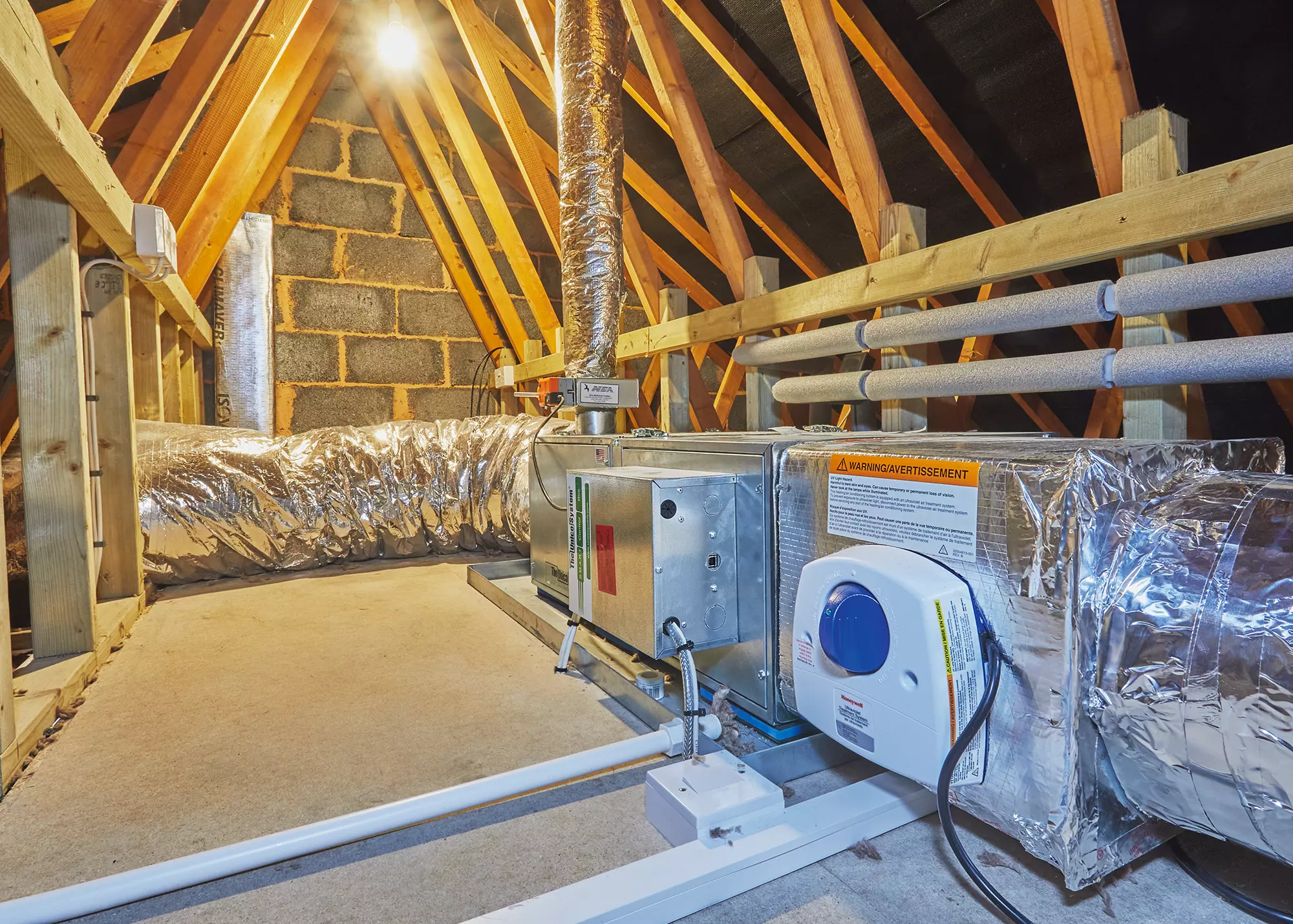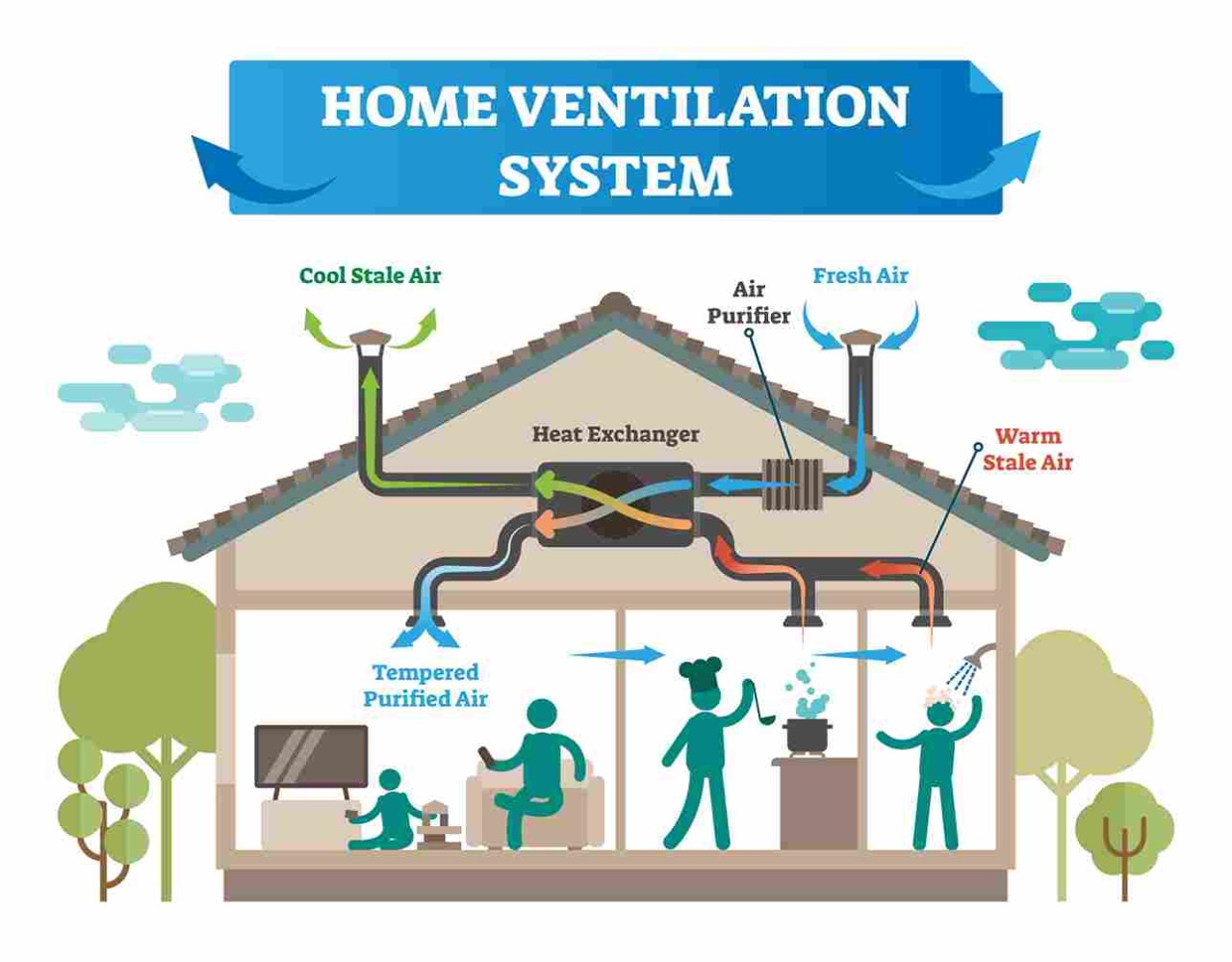Expert Answers to Common Questions About Home Ventilation Melbourne
Wiki Article
The Duty of Home Air Flow in Stopping Mold and Indoor Allergens
Home ventilation is a vital element in keeping a healthy interior setting. It regulates moisture levels, which can avoid the development of mold and mildew and the accumulation of irritants. Numerous homeowners overlook the significance of appropriate air flow, often causing undetected concerns. Comprehending how ventilation systems function and their influence on air high quality can be the trick to a healthier space. What steps can be taken to improve these systems successfully?Comprehending Home Air Flow Equipments
While lots of house owners may ignore the relevance of air flow, comprehending home air flow systems is crucial for maintaining interior air high quality and preventing mold and mildew growth - Home Ventilation Melbourne. These systems facilitate the exchange of stale indoor air with fresh outdoor air, efficiently decreasing contaminants and dampness levels. Typical kinds include natural ventilation, which relies upon wind and temperature differences, and mechanical ventilation, which utilizes ducts and fans to control air flow. In addition, well balanced ventilation systems combine both methods to maximize air top quality. Appropriately designed and maintained ventilation systems can assist regulate temperature and humidity, guaranteeing a comfy living environment. Property owners must think about variables like home tenancy, climate, and design when picking an air flow system to best fit their needs and enhance general air top quality
The Influence of Humidity on Mold Development
Humidity plays a vital function in mold growth, making it an important variable for homeowners to monitor. Mold and mildew grows in atmospheres where moisture levels surpass 60%, as these conditions give the dampness needed for spores to sprout and proliferate. High humidity can arise from different sources, consisting of poor air flow, water leaks, and food preparation or bathing activities. When moisture levels stay elevated, mold can establish rapidly on natural materials such as timber, textile, and drywall. House owners should utilize dehumidifiers and guarantee appropriate air flow in areas prone to wetness, such as basements and restrooms. Preserving indoor moisture in between 30% and 50% can substantially reduce the risk of mold development, adding to a much healthier living atmosphere.Determining Common Indoor Allergens
Interior settings can nurture a variety of irritants that impact wellness and comfort. Typical interior allergens consist of allergen, animal dander, mold spores, and plant pollen. Dirt mites flourish in bed linen, carpets, and furniture, preying on natural product and contributing to breathing issues. Animal dander, made up of tiny flakes from skin and click here to read fur, can cause allergic responses in sensitive people. Mold and mildew spores, frequently existing in moist areas, can proliferate and influence air quality. Furthermore, plant pollen can infiltrate homes via open windows or on garments. Identifying these allergens is essential for keeping a healthy and balanced indoor setting. Awareness of their visibility allows house owners to take proactive procedures to minimize direct exposure and improve total indoor air quality.Advantages of Correct Air Flow
Proper air flow is important for maintaining a healthy and balanced interior atmosphere, as it assists to regulate air quality and minimize the buildup of pollutants. Adequate air movement promotes the exchange of exterior and indoor air, thus watering down unsafe materials such as volatile organic compounds, allergens, and dirt. This process not just boosts convenience however likewise adds to the general wellness of residents by reducing respiratory system issues (Home Ventilation Melbourne). Moreover, appropriate ventilation efficiently manages humidity levels, minimizing the chance of mold and mildew growth and promoting a drier setting helpful to health. Furthermore, it can boost energy performance by making sure that heating & cooling systems operate better, resulting in reduced energy expenses. In general, proper ventilation is a vital component in advertising a safe and healthy living room

Tips for Improving Home Ventilation
Many house owners may overlook it, improving home air flow is crucial for improving air top quality and preventing mold growth. One reliable technique is to consistently open windows to advertise cross-ventilation, enabling fresh air to flow. Installing exhaust fans in bathrooms and kitchens can efficiently get rid of moisture-laden air, decreasing humidity levels. Homeowners must also take into consideration using air purifiers with HEPA filters to capture contaminants and irritants. Regularly maintaining cooling and heating systems, consisting of changing filters, guarantees peak air movement and efficiency. Securing leakages around doors and home windows can avoid outdoors air from entering, which helps keep a regular interior environment. Incorporating houseplants can normally improve air high quality while adding aesthetic worth to the home.Frequently Asked Concerns
Just how Frequently Should I Clean My Home Ventilation System?
Identifying how often to clean a home air flow system depends upon different aspects, consisting of use and ecological conditions. Home Ventilation Melbourne. Generally, professionals advise a thorough cleaning every 3 to 5 years to maintain perfect air flow and effectivenessCan Plants Help In Reducing Indoor Allergens?
Study suggests that specific interior plants may aid reduce allergens by boosting air high quality and enhancing humidity. However, their performance differs, and preserving a tidy environment stays important for managing indoor allergens effectively.What Kinds of Air Filters Are Ideal for Mold Prevention?

Are There Details Air Flow Requirements for Cellars?

Just how Do I Know if My Ventilation Is Functioning Successfully?
To establish effective ventilation, one need to monitor moisture degrees, examine airflow More about the author via vents, and observe signs of condensation or stationary air. Regular evaluations can show whether the system properly circulates and exchanges indoor air.Understanding exactly how air flow systems function moved here and their impact on air top quality could be the secret to a much healthier living space. While numerous house owners might overlook the significance of ventilation, recognizing home air flow systems is crucial for maintaining interior air top quality and stopping mold growth. Usual types include all-natural ventilation, which relies on wind and temperature differences, and mechanical air flow, which uses air ducts and fans to manage air flow. Proper air flow is crucial for preserving a healthy interior setting, as it assists to regulate air top quality and lower the buildup of toxins. Numerous property owners may overlook it, enhancing home air flow is important for boosting air quality and preventing mold development.
Report this wiki page